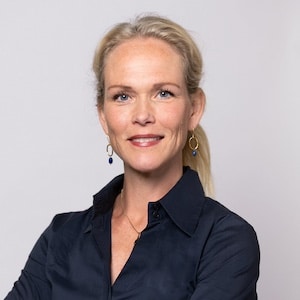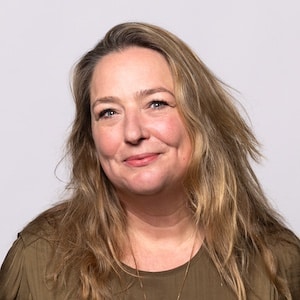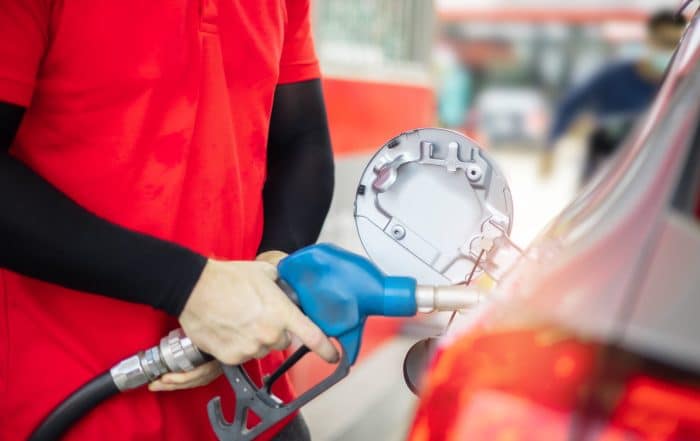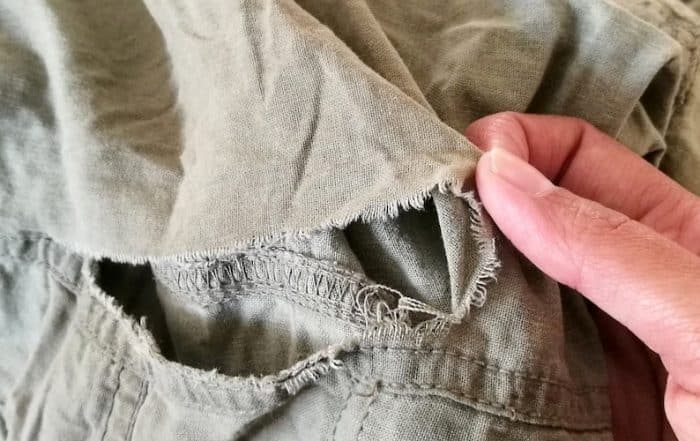‘Als we de agenda willen bepalen, moeten we problemen echt durven benoemen’
Als Boardlid opende Jacqueline Cramer vele deuren: dankzij haar enorme netwerk, kennis van zaken en geef-nooit-op-mentaliteit. Nu zit haar termijn erop. Samen met deze geboren transitiemakelaar blikken we terug én kijken we vooruit. “Naast de traditionele overheidssturing hebben wij ook netwerksturing nodig.”
Jacqueline Cramer over haar afscheid van de Board
Nee, echt uitkijken naar haar vertrek bij de Board doet Jacqueline Cramer niet. De reglementen dwingen haar ertoe. “Daarin staat dat je maximaal acht jaar lid mag zijn van de Board. Dat vind ik goed, de Board moet zich blijven vernieuwen. Tegelijkertijd vind ik het verschrikkelijk jammer, want het is heel leuk om dit werk te doen.”
In 2014 kwam ze in de Board als opvolger van Louise Fresco op het thema duurzaamheid. De voormalige VROM-minister had rondom dat thema toen al haar sporen ruimschoots verdiend. Na haar ministerschap in het vierde kabinet-Balkenende zette ze als hoogleraar het Utrecht Sustainability Institute (USI) op. Daarvoor leidde ze enkele grote programma’s rondom maatschappelijk verantwoord ondernemen.
Bij de Board kon Cramer met bedrijven, overheden, kennisinstellingen en maatschappelijke organisaties gezamenlijk duurzaamheidsinitiatieven in de praktijk brengen. Cramer: “Als minister had ik beleid geformuleerd, op het USI was ik vooral met de kenniswereld bezig, maar ik wilde aan de gang met de uitvoering van grote transities, zoals de energie- en grondstoffentransitie. Met een duidelijke ambitie vernieuwing van de grond krijgen, was mijn drijfveer. Gebruik maken van de kracht van de samenleving. Daar had ik ontzettend veel zin in.”
In wat voor organisatie kwam je toen terecht?
“Amsterdam Economic Board was in 2014 nog een ander soort organisatie: georganiseerd rondom clusters en sectoren en met leden die vooral bezig waren met het belang van hun sector. Ik heb toen aan de wieg gestaan van de kanteling naar een focus op de grote maatschappelijke uitdagingen in de Metropool Amsterdam. In deze regio heb ik in 2014 het programma circulaire economie opgezet en allerlei circulaire initiatieven uitgevoerd; de eerste jaren als uitvoerder van het programma en daarna in een regisserende rol samen met achtereenvolgens de leads Circulaire Economie: Dominique van Ratingen, Marjolein Brasz en Claire Teurlings. De coronatijd heb ik benut om alle ervaringen vast te leggen die ik had opgedaan met dit werk. Ik wilde goed reflecteren op wat we deden, zodat er overdraagbare kennis zou ontstaan. Naast de concrete voorbeelden, heb ik vooral beschreven hoe je transities kunt starten, opbouwen, opschalen en gemeengoed kunt maken. Ik concludeerde dat we naast de traditionele overheidssturing ook netwerksturing nodig hebben. Dat is bottom-up sturing vanuit coalities van welwillende partijen die gezamenlijk ambities willen realiseren, daartoe initiatieven nemen en die steeds groter maken.”
Waar ben je het meest trots op als je terugkijkt naar je jaren bij de Board?
“Dat we die omslag hebben gemaakt van sectoraal georganiseerde belangenclub naar een groep die zich richt op de grote uitdagingen van onze metropool. Dat er nu een Network Council is die het gemeenschappelijk belang wil dienen en impact wil maken. Ik ben ook trots op resultaten die we met het programma circulaire economie hebben geboekt, bijvoorbeeld op het gebied van matrassen, textiel, metalen en circulair inkopen. En dat we daarmee in de Metropool Amsterdam een beweging rond circulaire economie tot stand hebben gebracht. Verder vind ik het mooi dat we in het initiatief LEAP met een complex onderwerp als datacentra aan de slag zijn gegaan, waarvoor destijds nauwelijks aandacht was. Maar het belangrijkste is misschien wel dat ik zie dat mijn ideeën over netwerksturing binnen de Board zijn ingedaald en nu standaard gebruikt worden. En dat ik drie boeken over netwerksturing heb mogen publiceren, waarin ik laat zien hoe netwerksturing werkt en kan werken.”
Zijn er ook dingen waar je minder tevreden over bent?
“Zeker. Ik vind het heel jammer dat we de potentie van circulair inkopen nog niet ten volle hebben benut. Daar hadden we meer van kunnen maken, als we daar met meer power op hadden doorgepakt. Dat ligt niet per se aan de weerstand bij organisaties, want die kom je altijd tegen als je iets wil veranderen. Het gaat erom dat je dan verder zoekt naar een vorm die wel werkt. Dat zagen we bijvoorbeeld ook bij de pilot voor het recyclen van luiers. Er was al een consortium uit elkaar gevallen vanwege het afhaken van afvalverwerkingsbedrijf AEB; het nieuwe consortium kreeg de businesscase niet rond. Toen heb ik contact gezocht met het ministerie om te onderzoeken of een uitgebreide producentenverantwoordelijkheid tot de mogelijkheden behoort. Dan worden de meerkosten voor recyclen toegevoegd aan de prijs van luiers. Daarover loopt nu het gesprek met het Ministerie van Infrastructuur en Waterstaat.”
De komende jaren wil Amsterdam Economic Board meer agendasettend zijn en zich daarom ook meer gaan richten op schurende problemen en dilemma’s. Hoe zou dat er wat jou betreft uit moeten zien?
“Als we agendasettend willen zijn, moeten we de problemen echt durven benoemen. Onze grote uitdaging daarbij is dat we als Board onafhankelijk zijn, maar dat alle partijen in de Board en Network Council de pet van hun organisatie op hebben en dus niet onafhankelijk zijn. Dat is een soort Gordiaanse knoop waarin we een goede modus in moeten vinden. Want wanneer je agendasettend wilt zijn en je nek uit wilt steken, dan ontkom je er niet aan dat je soms uitspraken doet waar niet alle Boardleden zich openlijk achter willen of kunnen scharen. Neem de datacentra: we kunnen niet volhouden dat we de datahub van Europa willen zijn en het dan niet hebben over de forse energiebesparing en toepassing van duurzame energie die daarvoor nodig is. De toekomst van Boardlid Tata Steel is ook zo’n heet hangijzer: Ga je als ander Boardlid iets zeggen over de manier waarop zij zouden moeten verduurzamen? Ik denk dat Boardleden over hun eigen schaduw moeten kunnen stappen als de Board de agenda wil bepalen voor de grote maatschappelijke uitdagingen.”
Als lid van de Agendacommissie heb jij je er ook hard voor gemaakt dat Amsterdam Economic Board zich meer gaat focussen op impact: op wat we precies bereiken met onze initiatieven?
“We willen niet alleen maar leuke dingen initiëren, we willen ook laten zien en bewijzen wat het effect daarvan is. We moeten de impact verantwoorden en tegelijkertijd voorkomen dat dat een hele boekhoudkundige toestand wordt. Ook dit is weer een dilemma: het gaat om de sociale, economische en milieu-impact en niet om een administratie die er piekfijn uitziet. Maar aan de andere kant: als je niet goed verantwoordt wat je doet, kun je weer het verwijt van greenwashen krijgen. Daarom is het meten van die impact zo belangrijk.”
Ben je eigenlijk hoopvol gestemd over het halen van de klimaatdoelen van 2030 en 2050?
“Ik ben van nature een optimistisch mens, maar als ik zie wat er nu op het gebied van duurzaamheid gebeurt, houd ik mijn hart vast. De uitdagingen waar we voor staan zijn gigantisch. Het gaat niet alleen over technische verandering maar vooral over de vraag hoe we die verandering organiseren en hoe we iedereen daarin kunnen meenemen. Er is leiderschap nodig; de politiek is te reactief. Wat me hoopvol stemt is de kracht die er in de haarvaten van de samenleving zit. Die moeten we mobiliseren. Neem het Actienetwerk 15% GasTerug om de winter door te komen. Dat hebben we in korte tijd opgezet met veel verschillende partijen en die achterbannen komen nu in actie: in buurten en bedrijventerreinen. Dit soort krachten kunnen we veel beter benutten.”
In oktober neem je definitief afscheid van de Board. Wat ga je dan doen?
“Ik ben nu betrokken als regisseur – ik noem mezelf transitiemakelaar – bij de uitvoering van verschillende transitie-initiatieven: bijvoorbeeld rondom textiel, het Betonakkoord en het Bouwakkoord Staal. Zolang ik daaraan een bijdrage kan blijven leveren, wil ik dat doen. Deze zomer was ik op uitnodiging negen weken in Australië om daar de circulaire economie te helpen opbouwen en het belang van netwerksturing uit te dragen. Dat zou ik ook in andere landen willen doen. Mijn drijfveer is daarbij de urgentie die ik voel rondom duurzaamheid. We moeten versnellen en daarvoor wil ik me inzetten. Natuurlijk ga ik de Board missen. Ik heb er een ontzettend fijne tijd gehad. Ik heb iets aan ze gegeven, maar ik heb er ook heel veel inspiratie, samenwerking, ondersteuning en kansen voor teruggekregen. Daarvoor ben ik de Board erg dankbaar.”
Tekst: Mirjam Streefkerk
Méér Board Talk
Het interview met Jacqueline Cramer is deel 20 in de reeks Board Talk. Hierin praten we met Boardleden over de grootste uitdagingen voor de Amsterdamse metropool. Een regio die een duurzame, gezonde leefomgeving biedt, verantwoorde digitalisering en waardevol werk voor iedereen. Dit zijn ook belangrijke thema’s voor Amsterdam Economic Board. Lees ook de andere interviews in de serie Board Talk.
26 september 2022
Meer weten over
Neem contact op
Blijf jij ook op de hoogte?
8x per jaar nieuws en events uit de regio: schrijf je in voor de Board Update nieuwsbrief
Deel dit artikel
Wil je op de hoogte blijven?
Volg ons dagelijks op LinkedIn en schrijf je in voor de Board Update nieuwsbrief.
Lees ook deze berichten
- Met de selectie van vier kanshebbers is de regionale voorronde van de ...
- Met meer dan 80 ondernemers, 40 investeerders en diverse dienstverleners bood LSH Capital Match ...
- In tijden van geopolitieke spanningen, technologische revoluties en politieke onzekerheden is het ...





